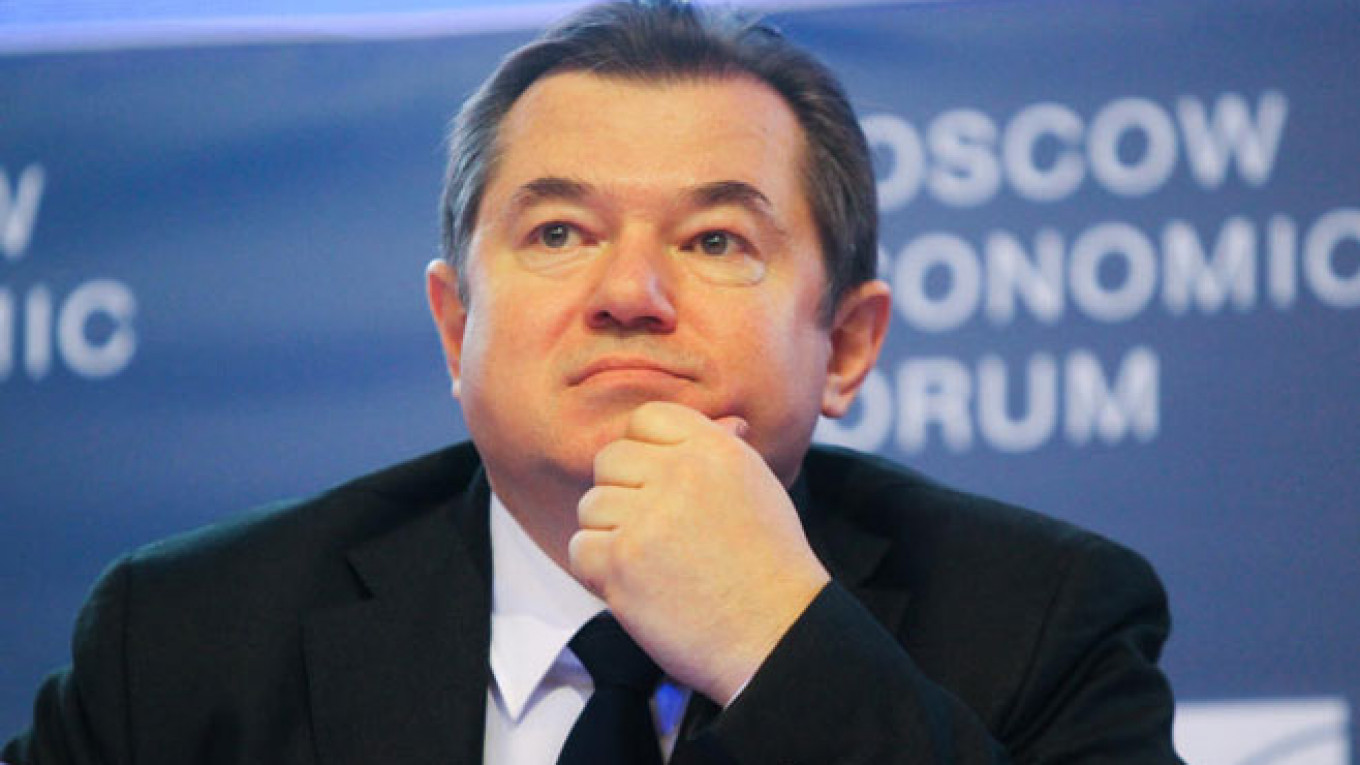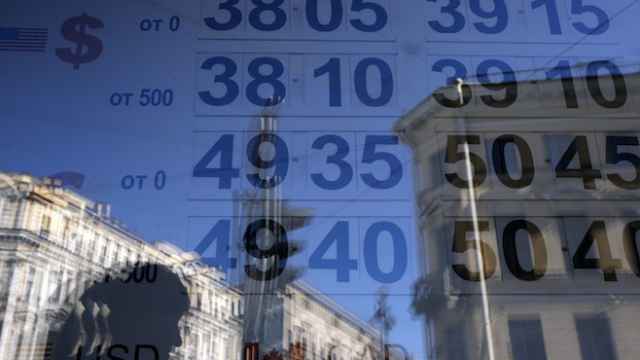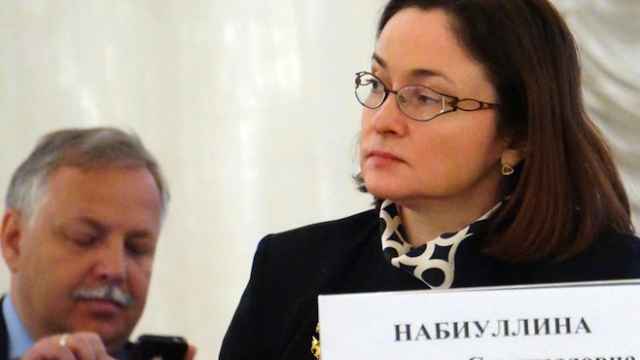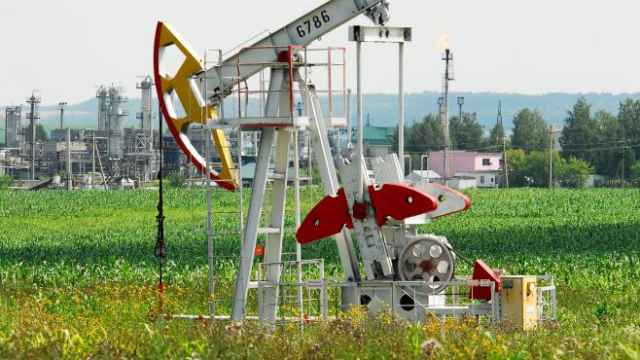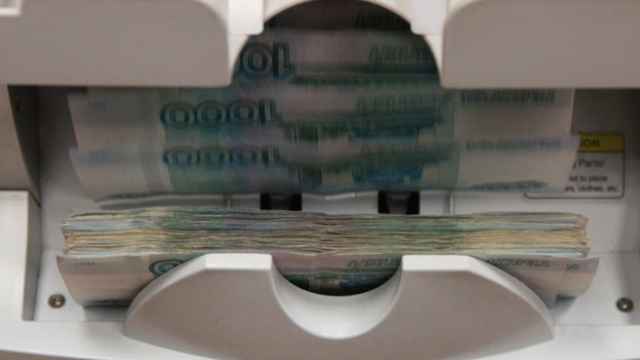An adviser to President Vladimir Putin suggested to lawmakers on Monday that Russia impose a tax on money being moved abroad, as government predictions of capital outflow this year rose to $120 billion amid tensions over Ukraine and a weakening ruble.
"To reduce the stimuli for capital outflows … we have to fight the export of capital," Sergei Glazyev was quoted by RIA Novosti as saying in a parliamentary debate about ways to boost economic development. "I would propose thinking about the introduction of a tax on the export of capital."
Russia scrapped the last of its capital controls eight years ago in an economic reform that was considered a landmark of Putin's second presidential term.
The first deputy chairman of the Central Bank, Sergei Shvetsov, said last week that any re-introduction of capital restrictions would be a "political" decision, but he admitted that the bank was discussing "measures to reduce the vulnerability of the Russian financial market," Bloomberg reported.
The Central Bank has raised the benchmark interest rate by 250 basis points to 8 percent this year, in an effort to shore up Russia's economic position, but tensions over Ukraine have helped send the ruble to historical lows and pushed up capital outflow to levels not seen since the financial crisis of 2008.
Rising Capital Outflow
In a sharp upward revision, the Economic Development Ministry admitted Monday that capital outflow this year could reach $120 billion, Interfax cited Deputy Minister Alexei Vedev as saying.
Investors have been pulling money out of Russia since Moscow's annexation of the Black Sea region of Crimea and support for separatists in eastern Ukraine provoked international condemnation and led to tit-for-tat sanctions between Moscow and the West.
Capital outflow was $74.6 billion in the first six months this year, more than double the equivalent period in 2013. And some expect the final capital flow figure for the full year to be even higher than the Economic Development Ministry's latest forecast. Credit rating agency Fitch estimates that total capital outflow this year will be $120 billion, and other experts say it could be as high as $150 billion.
Glazyev's Solution
Laying out the proposals in more detail, Glazyev said Russian companies legally importing goods could be exempt from his capital export tax. He did not got give any estimates for a possible time frame for implementing such a measure.
Glazyev, who is on the sanction lists of both the U.S. and EU, advises Putin on economic integration with former Soviet countries. Last year he was reportedly a leading — albeit ultimately unsuccessful — candidate to head Russia's Central Bank.
While the 53-year-old economist's hawkish views are often considered oddball and not always endorsed by the Kremlin, his outspoken criticism of Kiev over its move toward deeper economic cooperation with Europe has closely matched official rhetoric and Russian policy.
Precedents
Capital controls usually frighten off investors, but the measures have been used by a number of countries around the world, including India and China, to defend their economies and currencies. This year, they were imposed by Ukraine as the country descended into political and economic crisis.
Russia abolished the last vestiges of its capital controls in 2006 when it scrapped a requirement to guarantee cross-border transactions with deposits at the Central Bank. Even as $132.1 billion fled the country in 2008 the authorities did not look to re-impose the restrictive measures.
Despite recent reductions and growing spending commitments, Russia's Central Bank still has about $460 billion of foreign currency reserves and many think that the situation would have to get significantly worse before the specter of currency controls could become reality.
"They are pretty orthodox at the Central Bank," said Timothy Ash, head of emerging market research at Standard Bank, referring to the regulator's commitment to its stance on monetary policy.
"It depends on how bad things get."
A Message from The Moscow Times:
Dear readers,
We are facing unprecedented challenges. Russia's Prosecutor General's Office has designated The Moscow Times as an "undesirable" organization, criminalizing our work and putting our staff at risk of prosecution. This follows our earlier unjust labeling as a "foreign agent."
These actions are direct attempts to silence independent journalism in Russia. The authorities claim our work "discredits the decisions of the Russian leadership." We see things differently: we strive to provide accurate, unbiased reporting on Russia.
We, the journalists of The Moscow Times, refuse to be silenced. But to continue our work, we need your help.
Your support, no matter how small, makes a world of difference. If you can, please support us monthly starting from just $2. It's quick to set up, and every contribution makes a significant impact.
By supporting The Moscow Times, you're defending open, independent journalism in the face of repression. Thank you for standing with us.
Remind me later.



